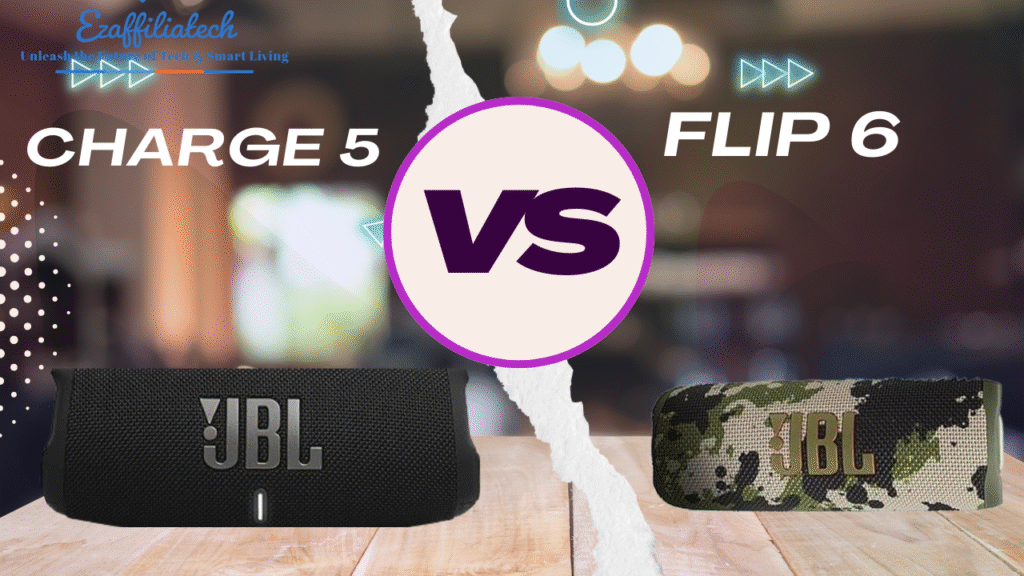Introduction
If you’re running an affiliate blog and willing to Rank Higher in Google, chances are your SEO (Search Engine Optimization) needs serious attention. SEO is not just about adding keywords—it’s about building trust with search engines like Google and helping them understand the value of your content. This guide shares SEO tips for affiliate bloggers—especially those using WordPress—to help you rank higher in Google, bring in organic traffic, and increase your affiliate income.
In this guide, you’ll find actionable SEO tips for affiliate bloggers, especially those using WordPress. We’ll break down every important step—from keyword research to technical fixes—so you can grow your traffic, boost affiliate earnings, and build long-term success.
Table of Contents
Why SEO Matters for Affiliate Bloggers

Here’s why SEO is crucial: It
- Brings Organic Traffic: Unlike paid ads, SEO helps bring consistent, long-term visitors for free.
- Builds Trust: High-ranking pages are trusted more by users.
- Increases Revenue: More traffic = more clicks = more affiliate commissions.
Affiliate bloggers earn money by recommending products through tracked links. But if nobody finds your blog, nobody clicks your links. As a result you will earn no money through affiliate marketing.
WordPress users: WordPress is already SEO-friendly by default, but plugins and customization can enhance performance.
Keyword Research That Drives Affiliate Clicks
Keyword research is the backbone of SEO. Choose the wrong keywords, and you’ll miss your audience completely. It’s not just about finding keywords with high search volume—it’s about uncovering buyer-intent keywords that actually lead to clicks and conversions.
Why It Matters
If you’re targeting random traffic, you’re just getting views. But if you target the right keywords, you’re getting ready-to-buy visitors who are more likely to click your affiliate links.
For example:
- ❌ Bad: “Best headphones” → Too broad
- ✅ Good: “Best noise-canceling headphones under ₹5000” → Specific, intent-based, and likely to convert
How to Find the Right Keywords:
- Use Free Tools: Search for niche keywords with medium competition and strong commercial intent (e.g., “buy,” “best,” “review,” “vs,” “cheap,” “under ₹XXXX”). Use Tools Like Ahrefs keyword-generator, Google Keyword Planner, Ubersuggest, Answer the Public, Keywords Everywhere
- Target Long-Tail Keywords: These are longer, more specific phrases (e.g., “best budget fitness tracker for women 2025”). They may have lower volume but higher conversion rates. Example: “best noise cancelling headphones 2025 for students”
- Focus on Intent: Is the user looking to buy? Learn? Compare?
- Look at ‘People Also Ask’ and Google Autosuggest: These show real questions people search for. Answering these can land you a spot in featured snippets and get more qualified traffic.
- Spy on Competitors: Use free tools like Ubersuggest or paid ones like SEMrush to see which affiliate articles your competitors rank for—and which keywords bring them traffic.
Keyword Types for Affiliate Bloggers:
Not all keywords are created equal—especially in affiliate marketing. Choosing the right type of keyword determines whether your blog attracts curious readers or actual buyers ready to click your affiliate links.
Here are the 5 must-know keyword types every affiliate blogger should use strategically:
- Informational Keywords
These are “how-to,” “what is,” or “guide” queries that help build trust and bring top-of-the-funnel traffic.
Example: How to Create an Amazon Business Account in India?
Good for: Driving traffic, internal linking
Add affiliate links subtly or as bonus suggestions
- Commercial Investigation Keywords
Used by users comparing products or exploring options before buying. These are gold for affiliate clicks.
Example: Top 5 Smart Home Devices under ₹30,000
Good for: Product roundups and top 5/10 lists
High-intent but not urgent — needs compelling CTAs
- Transactional/Buyer Intent Keywords
These indicate that the user is ready to make a purchase. They convert extremely well.
Example: Buy MacBook Air M3 online, Where to buy standing desk in India
Good for: Direct product reviews with affiliate links
Should be your primary keyword focus for revenue
- Comparison Keywords
These signal the reader is deciding between two or more products. Perfect for affiliate review battles.
Example: Bose QC Ultra vs Sony WH-1000XM5
Good for: Honest pros/cons, price differences, features
Insert affiliate links for both products (e.g., Bose QC Ultra vs Sony WH-1000XM5).
- Brand + Product Keywords
Used by people already aware of the product and looking for more info.
Example: DJI Osmo Pocket 3 review, Samsung Galaxy S25 price in India
Good for: Single-product reviews, unboxings, YouTube embeds
Very high CTR if ranked well
Mix these keyword types across your blog. Use informational posts to build trust and rank broadly, and buyer intent posts to monetize with affiliate links.
- Informational: “How to use a smart plug for energy monitoring”
- Commercial: “Best smart plug for Alexa”
- Transactional: “Buy TP-Link Tapo plug online”
Pro Tip: Keep a spreadsheet to track keyword difficulty, search volume, and CPC (cost-per-click).
On-Page SEO – Optimizing Your Blog Posts
Once you have your keywords, it’s time to optimize your blog posts.
On-Page SEOs are foundational SEO steps that ensure your content is visible to search engines and relevant to user queries. Proper use of keywords and headings improves rankings and click-through rates (CTR).
On-page SEO is where content meets strategy. It ensures your blog posts are easily understandable by both search engines and your readers, helping you rank higher and drive affiliate clicks effectively.
A well-optimized blog post can turn even low-traffic keywords into consistent passive income.
Key On-Page SEO Elements You Must Get Right:
Title Tag
- Place your keyword at the beginning of your blog title
- Your blog title should include the focus keyword, spark curiosity, and hint at a benefit.
- Example: Top 7 Must-Have Tech Gadgets for a Smarter Home in 2025
Meta Description
- Write a clear, benefit-driven summary (under 160 characters)
- Use 1–2 keywords naturally, include a clear value proposition, and a subtle CTA.
- Example: Discover the Top 7 Must-Have Tech Gadgets for a Smarter Home in 2025. Click to compare & buy!
URL Slug
- Short, clean, and keyword-rich.
- ❌Bad: /blog-post-about-tech-gadgets-2025
- ✅Good: /top-7-must-have-tech-gadgets (e.g., ezaffiliatech.com/top-7-must-have-tech-gadgets)
H1 & H2 Headings
- Only one H1 per post (usually the title).
- Break your content into logical sections with H2, H3, and H4
- Use H2s and H3s to organize your content and include variations of your keyword.
Keyword Placement
Sprinkle your focus keyword naturally in:
- The first 100 words
- Subheadings
- Alt text of images
- Last 100 words
Image Optimization:
- Compress images using tools like TinyPNG or ShortPixel
- Add ALT text with relevant keywords
Internal & External Links
- Link to related blog posts (internal)
- Link to authoritative sources or brand websites (external)
- Always use affiliate links where relevant—but don’t overdo it
Mobile Responsiveness
- Google is mobile-first. Make sure your blog design and text structure look great on small screens.
SEO Tips for Affiliate Bloggers:
Install an SEO plugin like Rank Math or Yoast and follow their recommendations, but don’t write only for the green lights. Focus on user experience first, SEO second.
SEO Checklist Audit
| Element | Status | Notes |
|---|---|---|
| 1. Focus Keyword in Title | ✅ | Present at the beginning: “SEO Tips for Affiliate Bloggers” |
| 2. Focus Keyword in Meta Description | ✅ (after fix) | Updated to include the exact phrase |
| 3. Focus Keyword in URL Slug | ✅ | Suggested: /seo-tips-affiliate-bloggers |
| 4. Focus Keyword in Introduction | ✅ (after fix) | Now included naturally in the first 100 words |
| 5. Keyword in at least one H2 Heading | ✅ | Used in: “Why SEO Matters for Affiliate Bloggers” |
| 6. Keyword in Image ALT Text | ⚠️ Needs improvement | Add ALT text to images like: alt="SEO tips for affiliate bloggers WordPress" |
| 7. Keyword Density (0.5–2%) | ⚠️ Slightly low | Currently ~0.3–0.4%; consider using it 2–3 more times naturally |
| 8. Synonyms/LSI Keywords | ✅ | Examples like “rank higher,” “affiliate blog SEO,” “WordPress bloggers” are used |
| 9. Internal Links | ✅ | Linking to other blog posts is encouraged, and one example was included |
| 10. External Links | ✅ | Suggestions like Cloudflare, Amazon, GTmetrix included |
| 11. Readability | ✅ | Simple, clear, and beginner-friendly |
| 12. Mobile Optimization | ⚠️ Theme dependent | Use responsive WordPress theme (e.g., GeneratePress) |
| 13. Sitemap & Indexing | ⚠️ Not verified | Ensure sitemap is submitted via Google Search Console |
| 14. Page Speed Optimized | ⚠️ Theme/plugin dependent | Use image compression, caching plugins |
| 15. SSL Enabled (HTTPS) | ✅ Recommended | Most hosts (like Hostinger) offer this free |
Technical SEO – The Invisible Power Behind Rankings
You could write the best content in the world, but if your site is slow or not mobile-friendly, Google won’t rank it.
Must-Have Technical SEO Fixes:
- Mobile-Friendly Design: Use responsive themes like GeneratePress or Astra.
- Fast Loading Speed:
- Use caching plugins like WP Rocket or LiteSpeed Cache
- Use a CDN (e.g., Cloudflare)
- Optimize images
- SSL Certificate: Use HTTPS for secure browsing
- Clean Site Structure:
- Use categories and tags properly
- Avoid messy URLs like
yourblog.com/?p=123
- Sitemap and Robots.txt:
- Generate a sitemap using Rank Math
- Submit to Google Search Console
Bonus Tip: Use tools like Google PageSpeed Insights and GTmetrix to test performance.
Off-Page SEO – Build Authority with Backlinks
Off-page SEO refers to everything that happens outside your site to boost your rankings.
Best Backlink Strategies:
- Guest Blogging: Write for popular sites in your niche
- Broken Link Building: Find broken links on other blogs and offer your link as a replacement
- Skyscraper Content: Create better versions of popular content and reach out to those linking to the original
- Social Sharing: Share your articles on Twitter, Reddit, Pinterest, and Facebook groups
Affiliate Tip: Build genuine relationships in your niche through forums, blog comments, and email outreach.
Content Strategy for Long-Term SEO Success
Google loves fresh, useful, and original content.
What to Write:
- Reviews: “Sony WH-1000XM6 Review – Is It Worth the Hype?”
- Comparisons: “Echo Dot vs. Google Nest Mini: Which is Better?”
- Tutorials: “How to Set Up a Smart Plug in 5 Minutes”
- Best Lists: “Uncommon But Genius Gadgets You Never Knew Existed”
How Often to Post:
- Start with 1–2 posts per week
- Focus on quality over quantity
- Update older posts regularly
Common SEO Mistakes to Avoid
Even seasoned bloggers make these errors:
- Keyword stuffing
- Using duplicate or spun content
- Ignoring mobile usability
- Skipping ALT text
- No meta descriptions
- Broken links or 404 errors
- Ignoring internal linking
Remember: SEO is a long game. Avoid shortcuts or black-hat tactics—they’ll hurt your site in the long run.
Final Words: SEO is a Skill You Build
SEO might sound intimidating at first, but it’s really just a set of habits. If you:
- Choose the right keywords
- Optimize your content properly
- Keep your site technically sound
- Promote through backlinks
…then Google will reward you over time. You don’t need to be an expert—you just need to start.
❓ FAQ: On-Page SEO for Affiliate Bloggers
1. What is on-page SEO and why is it important for affiliate blogs?
On-page SEO involves optimizing individual blog posts to rank higher on search engines. It helps affiliate blogs attract targeted traffic, improve visibility, and increase affiliate link clicks.
2. Where should I place keywords in a blog post for best results?
Include your focus keyword in the title, meta description, URL, first 100 words, subheadings (H2/H3), image alt text, and conclusion. Avoid keyword stuffing—use naturally.
3. How long should an affiliate blog post be for SEO?
Aim for at least 1200–2500 words. Long-form, in-depth content tends to rank better and gives more opportunities to insert affiliate links without overwhelming the reader.
4. Can I rank affiliate content without backlinks?
Yes, especially if you target long-tail, low-competition keywords and focus on excellent on-page SEO. But backlinks can definitely boost your domain authority and ranking potential.
5. What are the best SEO plugins for WordPress bloggers?
Top choices include Rank Math, Yoast SEO, and All in One SEO. These help you optimize titles, meta tags, sitemaps, and even suggest keyword usage.
6. Should I use affiliate links in the introduction?
You can, but it’s best to build trust and context first. Place affiliate links after you’ve offered genuine value or a solid product recommendation—especially in listicles and reviews.
7. How often should I update my affiliate blog posts?
Update your posts every 3–6 months to reflect price changes, new models, or updated comparisons. Fresh content signals relevance to Google and improves rankings.
Need help or have a query? Just drop your message in the form below.






Political Satire: The Art of Criticism and Freedom of Expression
June 4, 2023
Phasellus vel ante mi. Aliquam sit amet velit tortor. Fusce efficitur diam sit amet mauris consequat, vel vestibulum est gravida. Praesent lacinia velit nec arcu aliquam euismod at at dolor. Vivamus efficitur pellentesque nulla et